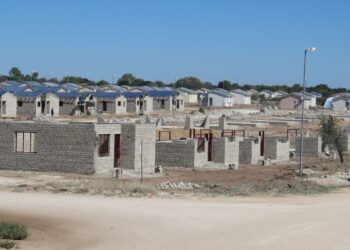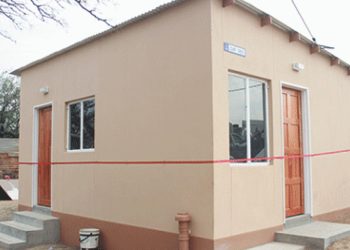
The FNB House Price Index indicates a concerning trend in land delivery, with residential plot sales contracting by 28.5% year-on-year in the fourth quarter of 2023.
The decline, coupled with high-interest rates and inflation, reflects subdued buying activity amid household indebtedness at 86% during the period.
FNB Namibia Group Economist Ruusa Nandago said the limitations hinder consumers’ ability to invest in assets like housing as the main focus is on supplementing disposable income which is strained in the current economic climate.
“This view is corroborated by private sector credit extension numbers which show that household mortgage credit grew by 3.0% on a 12-month rolling average basis in Q4-2023 compared to unsecured credit which grew by 11.1% over the same period,” she said.
The FNB index shows land delivery growth stagnating across regions as the central and northern areas experienced the sharpest declines at -33.1% and -36.7%, respectively.
Meanwhile, coastal regions saw an 18.5% contraction, while the south recorded a 2.0% decline.
This comes as the national house prices now stood at N$1.21 million in Q4-2023, slightly down from N$1.22 million in Q3-2023 but up from N$1.20 million in the same period in 2022.
“The average prices for the central, coastal, northern and southern regions stand at N$1,550 000, N$1,398 000, N$864,000 and N$881,000 respectively,” said Nandago.
Similarly, transaction volumes continue to contract for the sixth consecutive quarter, with a 12-month average growth rate of -19.1% in Q4-2023, compared to -27.7% in Q3-2023 and -17.9% in Q4-2022.
“From a segment perspective, the contraction was observed in the small (-29.5%) and medium (-31.3%) segments, while the large and luxury segments recorded a 20.0% and 0.0% growth rate respectively. This signals that buying activity in the residential property market remains subdued across the board,” noted Nandago.
FNB anticipates inflation moderating but persisting, with the repo rate likely peaking at 7.75% and rate cuts expected in late 2024.
However, “rising default rates may keep buying activity subdued through 2025, as rate cuts may not spur a significant rebound in the property market,” said the economist.
FNB reports optimism regarding potential market improvements, citing adjustments in LTV ratios and coastal energy sector activities.
The Index highlights the positive impact of the N$700 million allocation in the National Budget for informal settlement upgrades and housing provision.
Additionally, Nandago commended policy adjustments, specifically the increase in exemption levels from N$600,000 to N$1,100,000, which aims to enhance housing accessibility.











